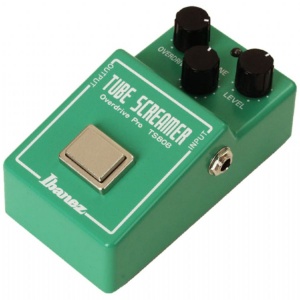Effect
An effect is, always, a noun. One may speak of the rainbow effect', special effects or, if one is a fan of the electric guitar, an effects pedal like Ibanez’s Let me Google that for you or Jim Dunlop’s Wah-wah Let me Google that for you.

Put those two puppies together: now that’s an effect.
But one must not use effect as a verb, even as a space-filler, however clamorously your inner articled clerk implores you to. “Effect” is the weakest verb in the English language. Whatever you are intending to “effect” is almost certain to be a nominalisation of a stronger, better verb; one better suited to the task you have in mind.
Why say “effect the conversion of shares” when you mean “convert the shares”?
Why say “effect the delivey of a notice” when you mean “deliver a notice”?
Why say “effect the butchery of a perfectly good sentence” when you mean -
Well, you get the point.
Plain English Anatomy™ Noun | Verb | Adjective | Adverb | Preposition | Conjunction | Latin | Germany | Flannel | Legal triplicate | Nominalisation | Murder your darlings